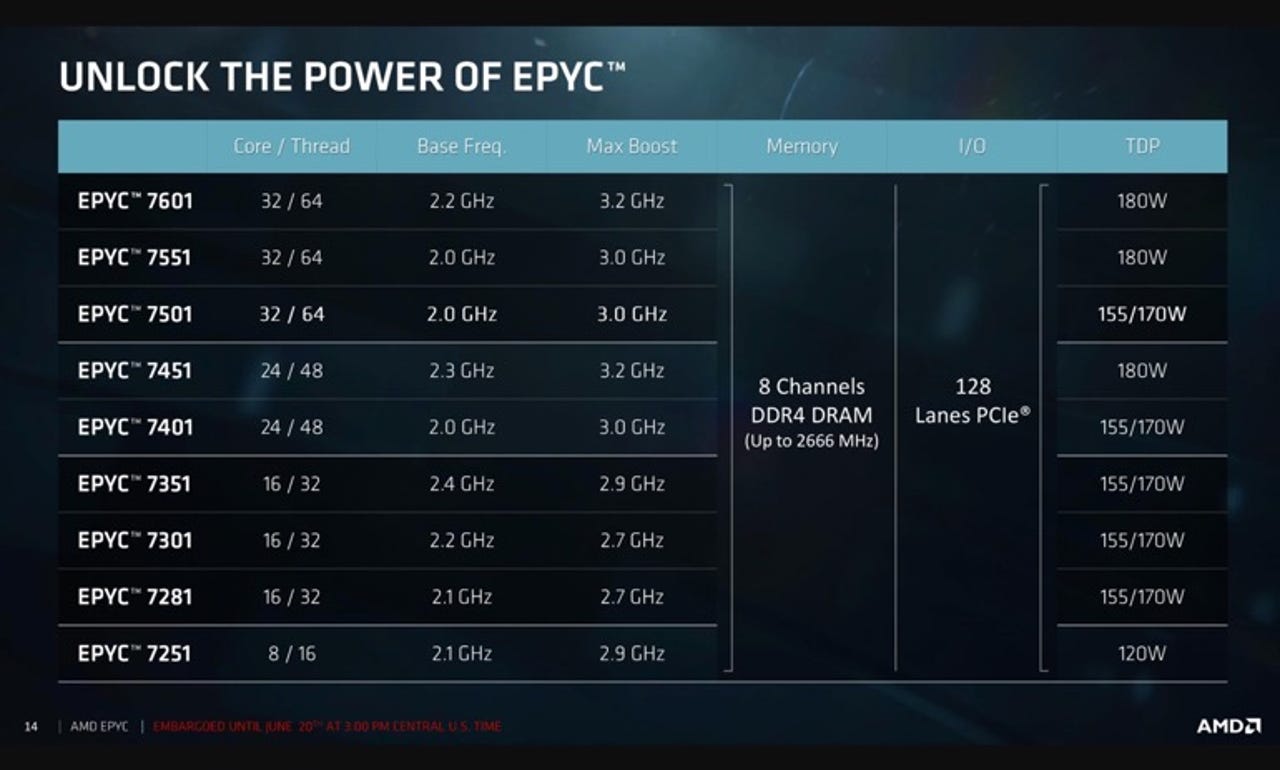AMD EPYC: What you need to know

AMD's new EPYC server processors are here, and we've got the rundown.
See also: Five Apple products that are headed for the scrapheap
First off, here are the processors that have been released. There are nine in total, ranging from 8-core/16-thread parts all the way up to 32-core/64-thread parts.

The EPYC 7000-series processors all have the following features:
- Up to 32 high-performance "Zen" cores
- Eight DDR4 channels per CPU
- Up to 2TB RAM per CPU
- 128 PCIe lanes
- Dedicated security subsystem
- Integrated chipset
- Socket-compatible with next-gen EPYC processors
AMD uses Infinity Fabric for both die-to-die and socket-to-socket interconnect (in a dual-socket arrangement, each processor dedicates 64 PCIe lanes to Infinity Fabric).
Infinity Fabric allows for near-perfect performance scaling when going from single-socket to dual-socket servers.
AMD has designed EPYC to allow for "no compromise" single-socket systems with no artificial limitations placed on performance.
EPYC also features new CPU instructions specifically aimed at the data center.
EPYC offer a far better bang-per-buck compared to Intel Xeon Broadwell servers in both single- and dual-socket configurations across all price points.
EPYC also features built-in hardware memory encryption specifically designed to protect virtual machines and containers from each other.
AMD's EPYC: Everything you need to know
See also:
- iOS 11 has a big problem, and we're to blame for it
- The iPhone 8 will have twice as much glass for you to break
- iPhone's battery draining fast? Here's how to fix it
- The quickest, simplest way to speed up an old, tired PC
- Apple selling outdated 32-bit iOS apps that will soon stop working
- How to securely erase hard drives (HDDs) and solid state drives (SSDs)